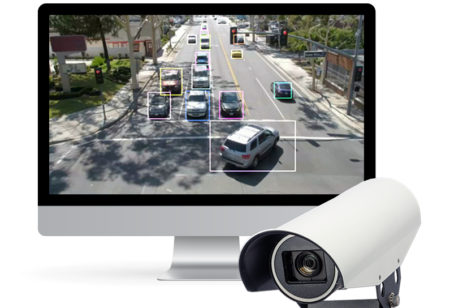North Carolina Department of Transportation (NCDOT) is piloting the use of tethered drones (unmanned aircraft systems or UAS) on its statewide Incident Management Assistance Patrol (IMAP) vehicles to assist with overall traffic management during network incidents.
The UAS are aimed at helping responders assess incidents, provide situational awareness to the NCDOT Statewide Transportation Operations Center (STOC) and traffic management centers (TMCs) and assist with overall traffic management during incidents. The deployment of this technology was realized as a result of a federal innovation grant received in 2020.
“Along our interstates, where our IMAP patrols operate, there are gaps in camera coverage, so we don’t have perfect situational awareness,” said state traffic operations engineer Dominic Ciaramitaro. “Our tethered drones will help us fill those gaps.”
Traditionally, traffic operations staff views video feeds at the STOC/TMC through traffic cameras or they receive reports from responders in the field. Tethered drones safely offer another method to provide more information in real time, with higher quality video, and for long periods of time.
IMAP trucks are equipped with multiple specialized tools to assist stranded motorists or scene management with first responders. The tethered drones will be just one more resource in their toolkit.

The drone can fly up to 150 feet to take video and livestream it to the STOC/regional TMC as well as to emergency management personnel at the incident. This instant information can provide a safer environment for those on scene or approaching an incident and allow the centers to better manage traffic and share more accurate traveler information to the public. The systems are highly portable and can be quickly launched and recovered.
The IMAP team has two tethered drone systems they will be testing as part of the pilot. The UAS program and IMAP program team trained the first IMAP supervisor in January. IMAP used it within days of the training to survey a crash near the U.S. 13 and Interstate 95 interchange in Fayetteville as its first operation in the field. The drone was in the air for nearly five continuous hours.
IMAP is managed through the divisions and is supported statewide by NCDOT’s Traffic Operations section, which is part of the Transportation Systems Management and Operations unit. The Division of Aviation advised and supported the unit with procuring, testing and training of the tethered drone systems as part of its work to expand beneficial drone use across NCDOT. The NCDOT’s Traffic Operations section will consider future deployment of tethered drones upon completion of the pilot’s evaluation.
Illustration: MagicTorch





